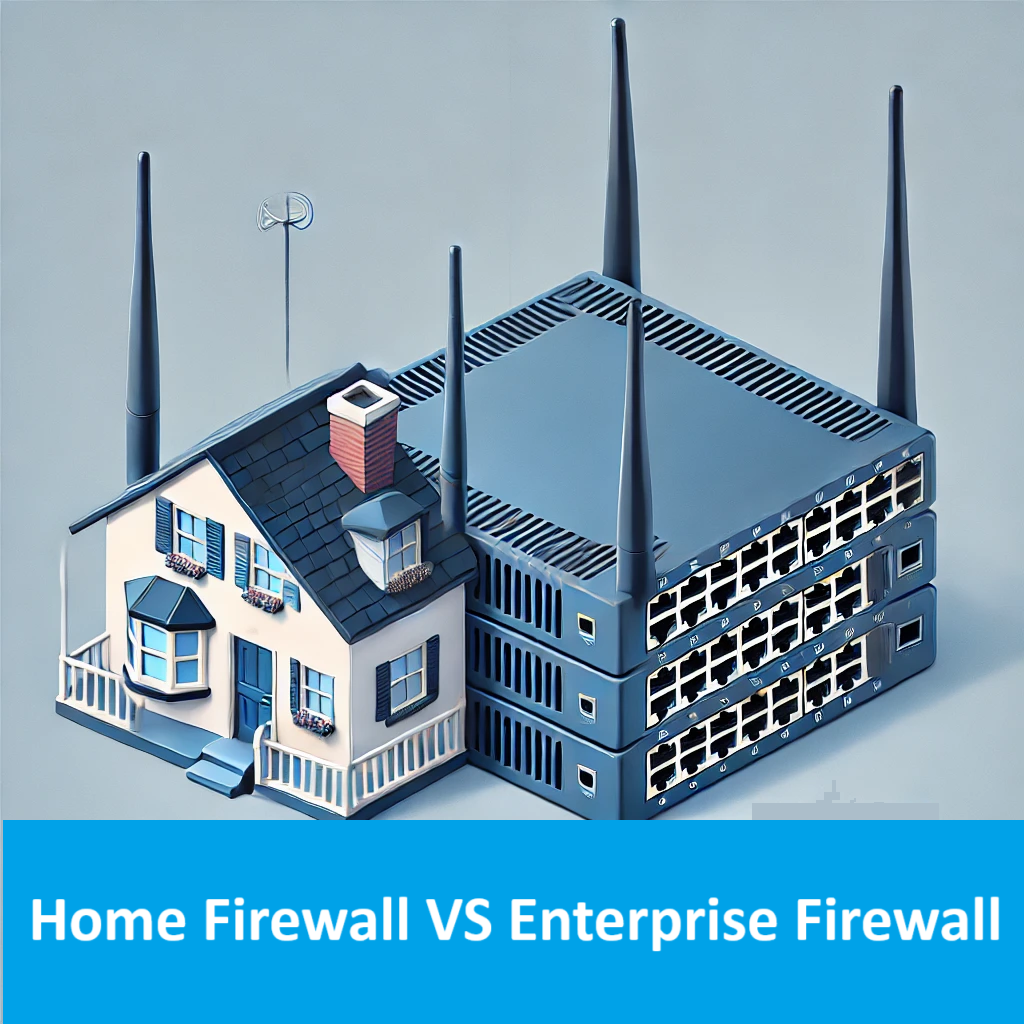
For many small business owners, network security starts with a simple purchase: a firewall from a big-box retailer like Best Buy. While these retail firewalls may seem like an affordable, straightforward solution, they often lack the capabilities to protect against modern cybersecurity threats. Upgrading to a next-generation firewall (NGFW) can provide the security and advanced features that businesses need to protect their data and operations. Here’s a look at the key differences and why an upgrade could be worth the investment.
1. Basic Security vs. Advanced Threat Detection
Retail firewalls, often marketed as “home routers” or “basic firewalls,” provide standard features such as Network Address Translation (NAT), basic packet filtering, and stateful inspection. While these features can prevent some unwanted traffic, they do little to protect against sophisticated threats such as malware, ransomware, or zero-day attacks.
On the other hand, NGFWs offer advanced threat detection capabilities, including:
- Intrusion Prevention Systems (IPS): Automatically blocks malicious traffic in real time.
- Deep Packet Inspection (DPI): Examines the content of each data packet for anomalies or signs of cyber threats.
- Advanced Malware Protection (AMP): Uses cloud-based intelligence to identify and prevent known and emerging threats.
2. Manual Configuration vs. Automated Security Policies
Retail firewalls generally require manual configuration to set up basic rules. These rules can be cumbersome to manage, and it’s easy for users to make mistakes that could leave their network vulnerable.
Next-generation firewalls simplify this process by providing automated security policies that adapt to changes in network traffic, user behavior, and threat intelligence. For example:
- User-based policies allow you to create rules based on who is on the network, not just what IP address they are using.
- Application awareness enables fine-tuned control over which applications can access the internet and under what conditions.
3. Limited Features vs. All-in-One Security
Firewalls from big-box stores are typically limited in scope, offering only basic firewall functionality and perhaps some rudimentary VPN capabilities. As a small business grows, additional solutions are often required for content filtering, anti-malware, and remote access—all of which may lead to a complicated and fragmented security setup.
NGFWs integrate multiple features into one device, including:
- VPN and remote access solutions
- Web content filtering to block malicious websites
- Antivirus and anti-malware protection for incoming and outgoing traffic
- Network monitoring tools to keep an eye on potential security incidents
4. No Visibility vs. Full Network Monitoring
Understanding what’s happening on your network is crucial for identifying and responding to security threats. Retail firewalls typically provide minimal logging and reporting, giving you little to no visibility into what’s happening on your network.
In contrast, NGFWs offer comprehensive network monitoring, allowing you to:
- View detailed logs and reports to see who is accessing what resources.
- Track suspicious activity across different parts of your network.
- Generate alerts for potential breaches or unusual behavior.
5. Low Performance Under Load vs. Optimized for Business Traffic
Retail firewalls are built with home users in mind, and their performance can degrade when handling large volumes of data or multiple simultaneous connections—common scenarios in business environments. This can lead to slow internet speeds, disrupted VPN connections, and a frustrating user experience.
NGFWs are designed for business needs, offering high throughput and the ability to maintain performance while enforcing security policies across multiple users and devices. This ensures that the firewall won’t be a bottleneck for your network traffic.
Why Should Small Businesses Upgrade?
- Improved Security Posture: NGFWs offer stronger protection against modern cyber threats, making them a critical investment for businesses that handle sensitive data.
- Compliance Requirements: Industries like healthcare, finance, and defense often have strict regulatory requirements for cybersecurity. NGFWs are better equipped to help businesses meet these standards.
- Scalability: As your business grows, so will your network needs. NGFWs provide the flexibility to add features and scale performance, while retail firewalls may quickly become obsolete.
- Centralized Management: With NGFWs, businesses can manage multiple security functions from a single dashboard, saving time and reducing complexity.
Conclusion
While the firewall you purchased at Best Buy may have been a suitable starting point, upgrading to a next-generation firewall is a smart decision as your business evolves. The enhanced security, ease of management, and advanced features of NGFWs can help protect your small business from evolving cyber threats, making it an investment that pays for itself in the long run. Don’t wait for a security incident to highlight the limitations of your current firewall—consider making the upgrade today.
Contact Roc IT Consulting to learn more about upgrading to a next-generation firewall and protecting your business from modern cyber threats.

